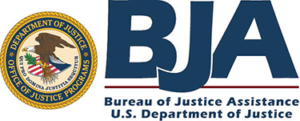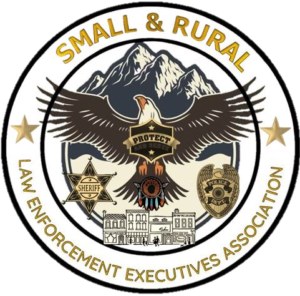The Rural Violent Crime Reduction Initiative (RVCRI) is an effort, funded by the Bureau of Justice Assistance (BJA), to provide funding and assistance to rural law enforcement agencies seeking to reduce violent crime and address problems associated with violent crime. Funding and support are available for implementing violent crime reduction strategies, improving investigations, improving services to victims, and for enhancing collaboration between local stakeholders. This will be achieved through the provision of training; deployment of technology; improvement of communication and collaboration between stakeholders; and expansion of community-based crime prevention programs and partnerships with victim services providers.
The RVCRI Team will work with grantees to establish, implement, and measure the success of their strategies and strategic plans by:
- Providing comprehensive recommendations to ensure key strategic elements are addressed;
- Creating a repository of evidence-based best practices and communities of practice;
- Supporting the establishment of clear data collection processes to measure outcomes in a manner consistent with the SARA Model; and
- Conducting regular meetings to track progress and identify TTA and peer learning opportunities

Bureau of Justice Assistance (BJA)
The Bureau of Justice Assistance’s (BJA) mission is to provide leadership and services in grant administration and criminal justice policy development to support state, local, and tribal justice strategies to achieve safer communities. BJA works with communities, governments, and nonprofit organizations to reduce crime, recidivism, and unnecessary confinement, and promote a safe and fair criminal justice system. BJA has five major strategic focus areas:
-
- Reduction in violent crime, improvement in community safety, and support for public safety officers
- Reduction in recidivism and prevention of unnecessary confinement
- Integration of evidence-based, research-driven strategies into the day-to-day operations of BJA and the programs BJA administers and supports
- Increasing program effectiveness with a renewed emphasis on data analysis, information sharing, and performance management
- Ensuring organizational excellence
- For more information: https://bja.ojp.gov/

National Policing Institute (NPI)
The National Policing Institute (NPI) was established in 1970 as a non-partisan and independent nonprofit organization dedicated to pursuing excellence in policing through science and innovation. At NPI, we envision police and communities working together to implement best practices that are informed or supported by research, resulting in safe, healthy, economically thriving, and mutually trusting communities.
In support of its mission, NPI is committed to conducting research, training, and technical assistance in three strategic priority areas:
-
- Force & Firearms
- Community Trust & Policing in a Democracy
- Officer Safety, Wellness & Healthy Police Organization
- For more information: https://www.policinginstitute.org/

Local Initiatives Support Corporation (LISC)
LISC is a non-profit with strong community partnerships that connects hard-to-tap public and private resources with underinvested places and people working to access opportunities every one of us deserves. LISC’s purpose is as it was when founded: government, foundations and for-profit companies have the capital; residents and local institutions understand the need; and LISC helps bridge the gap by offering the relationships and expertise to assist community organizations in attracting the kinds of resources that allow them to do their best work.
- For more information: https://www.lisc.org/

Small & Rural Law Enforcement Executives Association (SRLEEA)
SRLEEA is the only non-profit organization dedicated solely to supporting and promoting law enforcement executives and agencies that serve small, rural, and tribal communities. SRLEEA’s mission is to strengthen, unite, and raise the capacity of small, rural, and tribal law enforcement leaders and agencies.
- For more information: https://smallrural.org/
- To qualify as rural for this solicitation, an applicant must provide services in a rural area, but the jurisdiction's service area need not be exclusively rural. While the agency does not solely need to serve a rural area, the violent crime problem addressed must have a rural focus that allows for trackable impact. This definition holds for sheriff's and prosecutors' offices. For any municipality (e.g., town, village, or borough), the area must be considered rural, and the population must not exceed 15,000. The population should be based on the latest U.S. Census enumeration (https://www.census.gov/quickfacts/fact/table/US/PST045221).
- The Institute and BJA will use the Health Resources and Services Administration (HRSA) designation of rurality to help determine rurality scoring/qualification. To see if your agency is designated as rural, you can find the HRSA Tool at: https://data.hrsa.gov/tools/rural-health
- If you believe that your agency or the problem your agency is trying to address qualifies as rural, but the HRSA tool does not indicate that you are rural, please contact us at RuralVCRI@policinginsitute.org.
To apply for the RVCRI program, visit our application portal. Additional information on eligibility and application requirements can be found here. Applicants will need to create an account through the Create an Account link and submit a completed application. Completed applications include:
- Responses to all questions
- Project Narrative (Attached to the application in the provided Word template)
- Budget
If you have any additional questions regarding the RVCRI Program, please reach out to the RVCRI team at RuralVCRI@policinginstitute.org.
Awards will be in the $25,000 - $150,000 range. Technology requests, including hardware, software, and installation costs are capped at $90,000 per award. There is no match requirement.
The third application cohort deadline is March 14, 2025.
A proposal narrative template can be found here. A successful narrative will include the following:
- Clear articulation of one or more specific rural violent crime problems the applicant seeks to address.
- Using crime and other data sets, provide a clear understanding of the nature and concentration of the specific problem the applicant wishes to address. Applicant should also demonstrate a commitment/ability to gather crime and other data throughout the grant term.
- Thorough outline of the intended program, how it will address the identified violent crime challenge(s), and clear alignment to one or more violent crime reduction critical elements. Critical elements include community engagement, partnerships, technology, analytics and intelligence, training, tactics, resources and sustainability, and accountability.
- Clear plans to involve community members in problem analysis and strategy selection and/or implementation.
- A list of project partners, including criminal justice partners, community organizations, social\medical service providers, and private businesses who will be involved in program implementation.
- Identification of individual(s) responsible for implementing the microgrant and individual(s) administrating the grant (i.e. financial responsibility).
- Discussion of opportunities to sustain the project beyond the microgrant term.
Narrative sections should include:
- Description of the Issue
- Project Design and Implementation
- Plan for Measuring Success and Outcomes and Program Sustainability
If you have any additional questions regarding proposal development, please reach out to the RVCRI team at RuralVCRI@policinginstitute.org.
Funds may be used for a variety of purposes to support implementation of a site’s violence reduction plans. Examples of allowable costs for equipment, technology (capped at $90,000 including hardware, software, and installation costs), training, travel, personnel, and services include, but are not limited, to:
- Programs that support victims’ services and community engagement
- Salary or overtime expenditures for personnel integral to violent crime reduction operations
- Crime analysis software or personnel
- Consultation services related to program design, implementation, and assessment
- Development or acquisition of offender-based risk assessment tools to better target investigation, intervention, or enforcement
- Strategies to more effectively serve and address populations in remote areas, including ways to enhance orders of protection and improve access to services and shelter for remote populations
- Strategies and services to mitigate the risk for violent behavior in individuals dealing with mental health and/or substance use disorders, including crisis intervention programs and services
- Forensic evidence tools and services for identifying suspects or enhancing evidence, testimony, and outreach to victims
- Strategies, personnel, services, and tools to improve intragovernmental collaboration in effectively addressing rural violence problems
Unallowable costs include:
- Pre-award costs and expenditures
- Land acquisition
- Construction projects
- Firearms/ammunition
- Armored vehicles
- Drones
- Other tactical equipment used strictly for enforcement purposes, including, but not limited to, ballistic vests, restraints, tactical robots, spike strips, etc.
Body-worn cameras (BWCs), while technically allowable, will not be funded under this award since two BWC funding programs already exist:
- Small, Rural, Tribal BWC: https://www.srtbwc.com/
- BWC Policy and Implementation Program to Support Law Enforcement Agencies: https://bja.ojp.gov/funding/opportunities/o-bja-2022-171093
You can also search unallowable expenses in our Unallowable Expenses Tool.
Funding will be reimbursed based on set benchmarks and milestones. Examples of this could include the purchase of equipment, overtime pay for personnel for the past month, etc. Additional information can be found in the Financial SOP.
The RVCRI provides information, training, assistance, tools, and resources to help grantees and criminal justice agencies, organizations, and programs become more effective in their efforts to keep communities safe. The objectives of TTA are to:
- Provide information to grantees and criminal justice professionals to replicate model programs and approaches.
- Increase knowledge and use of best practices, emerging technologies, and new models.
- Help agencies and jurisdictions identify and address operational and programmatic needs.
- Assist agencies with the reduction of violent crime.
The RVCRI team is about enhancing collaboration between stakeholders, facilitating training, and deploying technology for grantees. The team will assist grantees in establishing, implementing, and measuring the success of their violent crime reduction plans by providing comprehensive recommendations to ensure key strategic elements are addressed; creating a repository of evidence-based best practices; supporting the establishment of clear data collection processes to measure outcomes; conducting regular meetings to track progress and identify TTA and peer learning opportunities.
RVCRI will assist grantees throughout the program by providing TTA in areas such as:
- Implementing community engagement strategies
- Implementing problem-solving models and problem-oriented policing
- Strengthening collaborative partnerships
- Enhancing crime analysis capacity
- Hiring and deploying personnel
- Purchasing and deploying technology
To request assistance, complete our TTA Request Form. If you have any questions as you complete the TTA Request Form, reach out to the RVCRI team at RuralVCRI@policinginstitute.org.
Any member of an agency that has received a RVCRI Grant.
The RVCRI Team will assign your request to a staff member for processing. The staff member will contact you to conduct a needs assessment and determine the appropriate course of action. Staff will compile all the necessary information for your request and send it for review and approval.
Requesting agencies will be responsible for actively participating in the delivery of TTA and a short post-TTA feedback survey and/or interview.
Feedback and assessment are required for all TTA activities. Agencies or organizations receiving TTA must complete an evaluation form with feedback on the effectiveness of services delivered. Many TTA activities also require a 3 or 6-month follow-up to determine what changes have occurred because of the assistance provided. Recipients of TTA are encouraged to speak to the RVCRI team if they have any questions about the delivery of TTA services.
